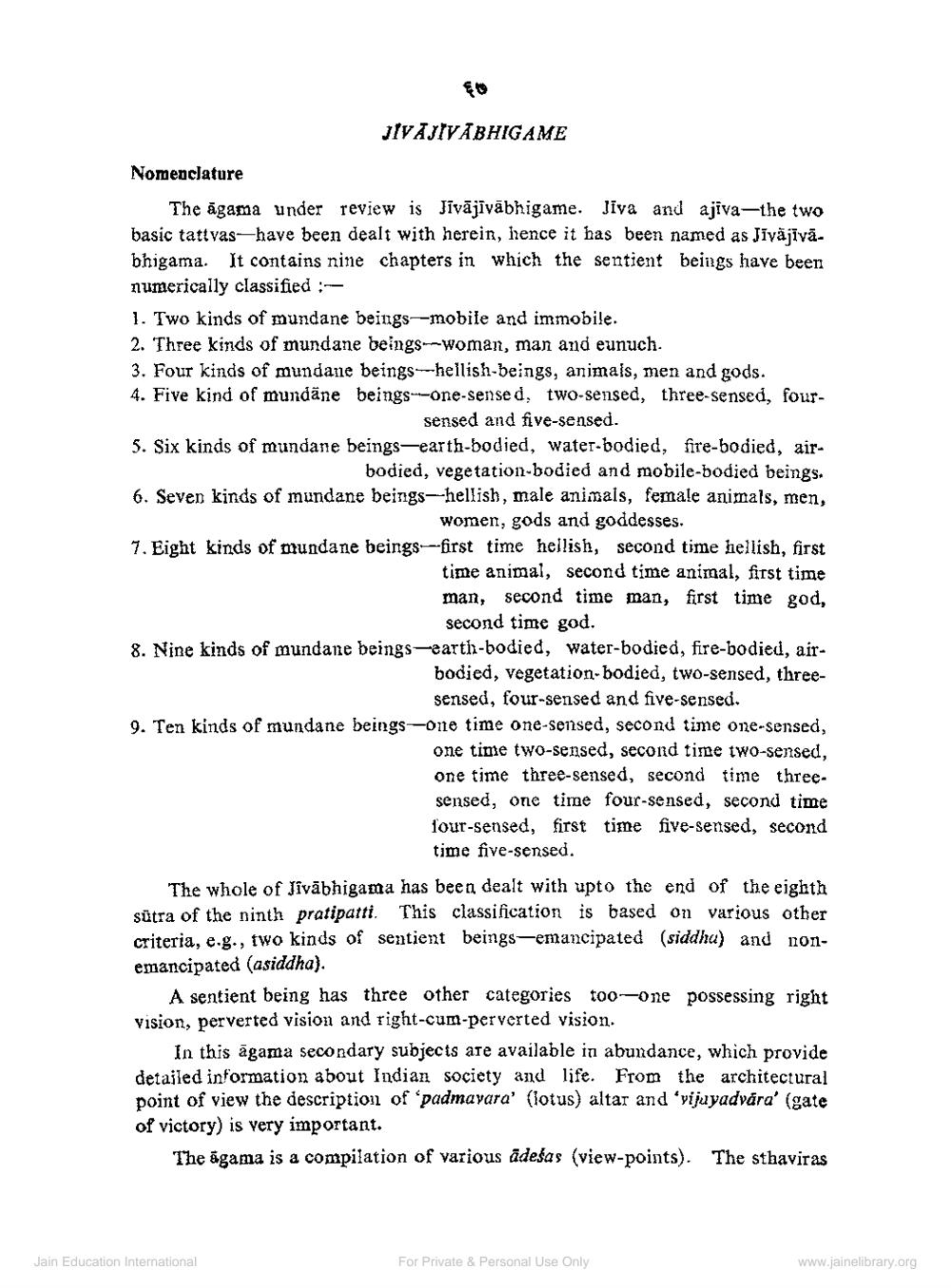________________
JIVĀJIVĀBHIGAME Nomenclature
The āgama under review is Jīvājīvābhigame. Jiva and ajiva-the two basic tattvas have been dealt with herein, hence it has been named as Jīvājīvā. bhigama. It contains nine chapters in which the sentient beings have been numerically classified :--- 1. Two kinds of mundane beings--mobile and immobile. 2. Three kinds of mundane beings--woman, man and eunuch. 3. Four kinds of mundane beings--heilish-beings, animals, men and gods. 4. Five kind of mundāne beings--one-sensed, two-sensed, three-sensed, four
sensed and five-sensed. 5. Six kinds of mundane beings-earth-bodied, water-bodied, fire-bodied, air
bodied, vegetation-bodied and mobile-bodied beings. 6. Seven kinds of mundane beings-hellish, male animals, female animals, men,
women, gods and goddesses, 7. Eight kinds of pundane beings---first time hellish, second time hellish, first
time animal, second time animal, first time man, second time man, first time god,
second time god. 8. Nine kinds of mundane beings-earth-bodied, water-bodied, fire-bodied, air
bodied, vegetation-bodied, two-sensed, three
sensed, four-sensed and five-sensed. 9. Ten kinds of mundane beings-One time one-sensed, second time one-sensed,
one time two-sensed, second time two-sensed, one time three-sensed, second time threesensed, one time four-sensed, second time Tour-sensed, first time five-sensed, second time five-sensed.
The whole of Jivābhigama has been dealt with upto the end of the eighth sütra of the ninth pratipatti. This classification is based on various other criteria, e.g., two kinds of sentient beings-emancipated (siddha) and nonemancipated (asiddha).
A sentient being has three other categories too--one possessing right Vision, perverted vision and right-cum-perverted vision.
In this agama secondary subjects are available in abundance, which provide detailed information about Indian society and life. From the architectural point of view the description of 'padmavara' (lotus) altar and 'vijuyadvára' (gate of victory) is very important.
The agama is a compilation of various adešas (view-points). The sthaviras
Jain Education International
For Private & Personal Use Only
www.jainelibrary.org




